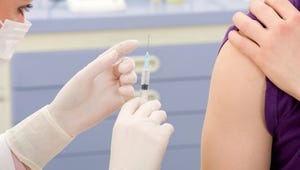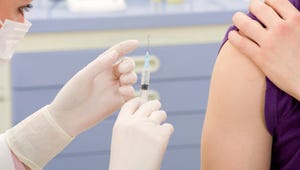Lee County has four cases of meningococcal disease which is second highest among all counties in an outbreak in Florida that the Centers for Disease Control and Prevention says is the worst in U.S. history among gay and bisexual men for the disease.
Collier County has one case out of 25 currently statewide since April 1 through June 29, according to Florida Charts, the database for reportable diseases.
The CDC last week said the state has had 24 cases of meningococcal disease and at least six deaths among gay and bisexual men. The federal agency did not disclose when the outbreak began.
Edison Park Elementary student dies from bacterial meningitis, principal announces
The CDC began working with the state Department of Health to investigate “one of the worst outbreaks of meningococcal disease among gay and bisexual men in U.S. history.”
Florida Charts shows Orange County has the highest number at eight cases, there are three cases in Polk County while Seminole, Miami-Dade and Broward counties each have two cases.
Alachua, Duval, and Palm Beach counties each have one case, according to the DOH data.
Officials in Leon County also reported a cluster of cases among college students but the Florida Charts data does not show any current cases in Leon.
The publicly-operated Lee Health system in Lee County reviewed records for the past three weeks and has not treated any patients with the disease, according to spokeswoman Meaghan Smith.
By the way, subscribers:Your kids are sick, but do they have the summer flu or COVID-19?
SWFL not among 500 healthiest communities in U.S., according to U.S. News
Florida only state not to preorder COVID-19 vaccine for children under 5
What is meningococcal disease?
Meningococcal disease can affect anyone and can be deadly. There are two major types of meningococcal disease, the first is meningitis which is an infection of the tissue that surrounds the brain and spinal cord. The other is a bloodstream infection.
It spreads from person to person through a bacteria that can be found in the back of the throat or nose.
The bacteria can spread from saliva and generally takes close contact through coughing, kissing or lengthy contact to spread.
In response to the outbreak, CDC is recommending gay, bisexual, and other men who have sex with men get a meningococcal vaccine if they live in Florida or talk with their healthcare provider about getting vaccinated if they are traveling to Florida.
“Getting vaccinated against meningococcal disease is the best way to prevent this serious illness, which can quickly become deadly,” Dr. José R. Romero, director of the National Center for Immunization and Respiratory Diseases, said in a news release.
“Because of the outbreak in Florida, and the number of Pride events being held across the state in coming weeks, it’s important that gay and bisexual men who live in Florida get vaccinated, and those traveling to Florida talk to their healthcare provider about getting (the) vaccine.”

The CDC is also emphasizing the importance of routine vaccination for people with HIV.
Signs and symptoms of meningitis include sudden onset of high fever, stiff neck, headache, nausea, vomiting, sensitivity to light and mental confusion.
Symptoms of the bloodstream infection include sudden fever, chills, and feeling unusually weak and tired. A rash may appear on the hands and feet.
People can find a meningococcal vaccine by contacting their doctor’s office, pharmacy, community health center, or local health department.
“The CDC has not assisted us with contact tracing efforts for meningococcal disease,” said Tammy Soliz, spokeswoman for the state Department of Health in Lee County.
State and local epidemiologists investigate each case as well as contacts people with potential or direct exposure may have had to provide them with information on post-exposure prophylaxis.
“(The state) and other local health departments are committed to providing as much information as possible to protect the public and the privacy of individuals,” she said. “Sharing specific information of how an individual may have contracted the illness, such as their travel history, could potentially release personal identifiable health information, especially in Florida’s smaller communities.”








